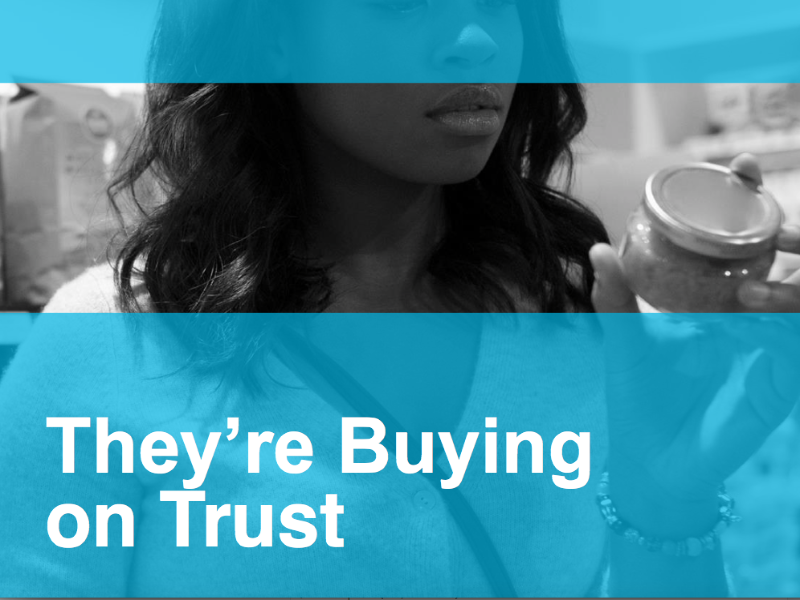Diana Marszalek 18 Jun 2019 // 6:00AM GMT

NEW YORK — Despite shoppers putting a growing premium on brand trust, the majority of companies are failing to foster the kind of confidence from consumers that leads to sales, according to a new Edelman study.
“I look at this as an opportunity for brands to step up,” president and CEO Richard Edelman told the Holmes Report.
Garnering consumer trust, however, starts with getting it right from the outset, he said, as more than half of the study’s respondents “think brands use societal issues as a marketing ploy. That’s not good.”
Specifically, the 2019 Edelman Trust Barometer Special Report found that just 34% of consumers trust most of the brands they use or buy.
Yet 81% of the study’s 16,000 respondents in eight countries said brand trust is a deal breaker, or at least a deciding factor, when they are considering a purchase. Only quality (85%), convenience (84%), value (84%) and ingredients (82%) ranked higher.
Trust is a strong consideration in purchases for the vast majority of respondents across geographies, age groups, gender and income levels, according to the research. That largely stems from consumers' growing concerns about product experience, customer experience and brands’ impacts on society, the report said.
53% of respondents believe every brand has a responsibility to get involved in at least one social issue that does not directly impact its business — yet just 21% claim to know from personal experience that the brands they use keep the best interests of society in mind.
Nonetheless, the study found the majority of companies are failing to build trusting relationships with consumers, in part because companies “are still relying on making impressions instead of making change.”
There are brands, however, who are doing that exceptionally well — including Dove Men+Care, whose campaign advocating for men taking paternity leave is backed up with a $1m fund to help new dads that don’t get paid leave. Another Edelman client — Starbucks’ — also comes with exemplary sustainability efforts. The company is in the process of eliminating plastic straws from all its 30,000+ stores by 2020.
“You can’t buy trust. You have to earn it,” he said. And there are payoffs for doing that; 53% of consumers who trust a brand are likely to be the first to buy the brand’s new products versus 25% who don’t have that conviction.
Consumers who trust a brand are more than twice as likely to be the first to buy the brand’s new products, and are more than twice as likely to stay loyal to a brand they trust, even in the face of disruption, such as a trendy or innovative competitor, the study found. “Trust is not nice to have. It’s a must,” Edelman said.
“We are at moment in time when trust in government is very low and there is more sense of having to rely on business to stand up speak up, within the workplace as an employer or in the marketplace to customers,” he said. That’s in keeping with Edelman’s 2019 Trust Barometer, from which employers emerged as the most trusted institution.
“People are hoping that brands deliver for them. We call it brand democracy.”


































.jpg)


















